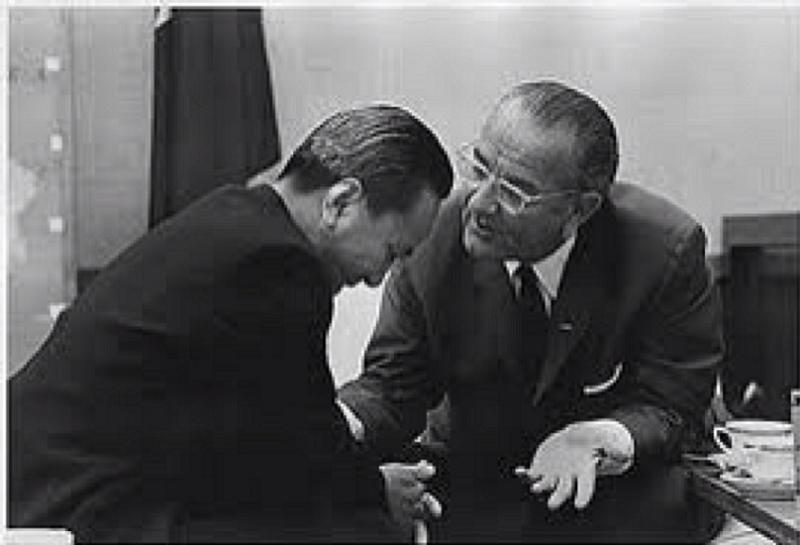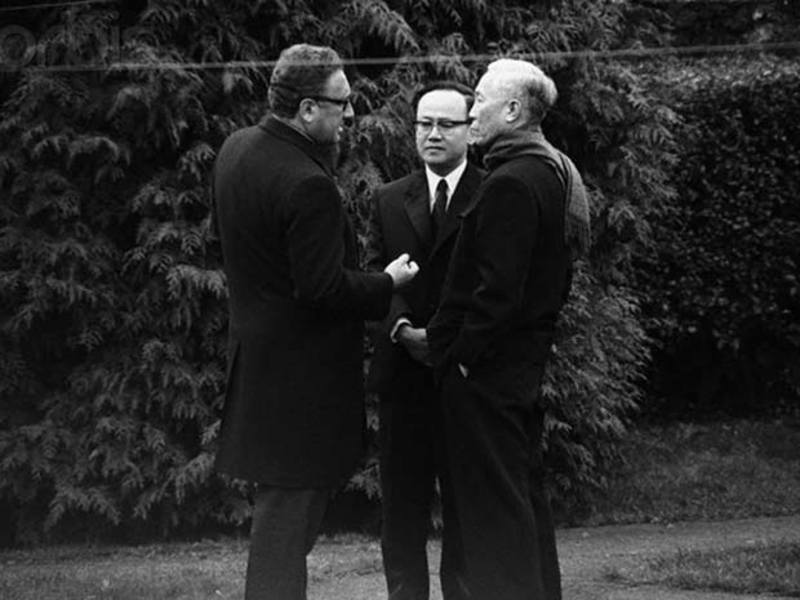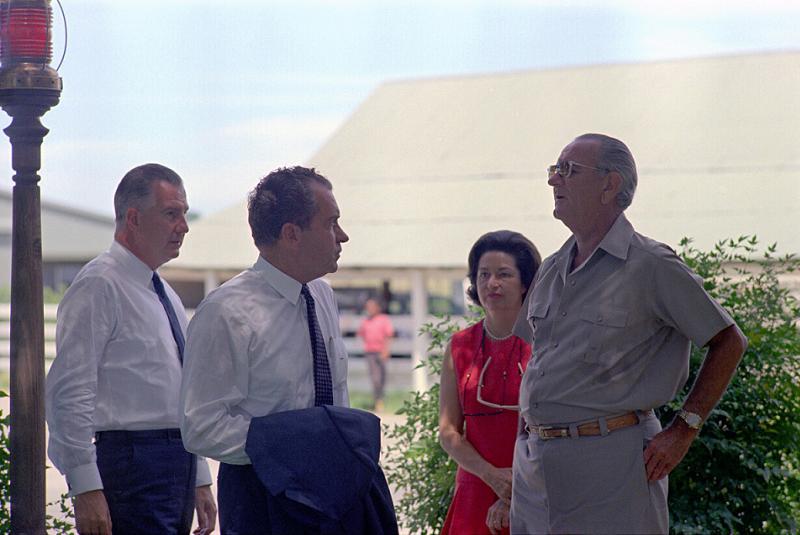Signs of Trouble

President Johnson meets with President Nguyen Image Source: Wikipedia
Johnson got the peace talks off to a promising start. By 1968 the war had become deeply unpopular, and news that America was in a talking mood was greeted with optimism in Hanoi, the then-capital of communist North Vietnam. Saigon, meanwhile, was dubious. President Nguyen van Thieu worried that Washington, in its hurry to make peace, might sacrifice South Vietnam’s position against the North. Throughout the process, diplomats worked closely with Nguyen to keep him informed and calm. Obviously, there would be no peace in Vietnam if the South didn’t agree to the terms, so Nguyen’s consent was crucial to any deal that could be worked out.
The first hint of trouble came during the summer peace talks. The South Vietnamese delegation stiffened its position and refused to make concessions to the North. In addition, South Vietnamese delegates started getting secretive and uncooperative with their American counterparts. President Nguyen refused to discuss this new reluctance with Johnson’s envoys, which threatened to make negotiations more difficult.
Chain of Betrayal

Paris talks soon backfired. Image Source: Flickr
At first, President Johnson was baffled by the sudden shift in South Vietnam’s position, which grew into a total boycott of the talks in Paris. By the end of October, news reached him that well-connected Wall Street financiers, namely Andrew Sachs, were investing in financial markets on their insider knowledge of Nixon’s plan to derail talks. Johnson ordered an immediate investigation by the FBI, which tapped several key figures’ phones and established that Nixon had been covertly encouraging Nguyen to hold out on the promise of getting a “better” deal if he, Nixon, won in November.
Declassified documents, including wiretaps, paint the picture of a long chain of conspirators. The cabal stretched from Paris, where Henry Kissinger was participating in daily negotiating sessions, to Nixon and his running mate, Spiro Agnew. The pair passed word to China lobbyist Anna Chennault to inform the South Vietnamese Ambassador that the Johnson Administration was planning to settle on terms that would amount to a betrayal of Nguyen’s government. Apparently, a lot of people were in the loop: When the enraged President Johnson called Senate Republican Leader Everett Dirksen on a tapped phone and complained that the Nixon campaign’s actions amounted to treason, Dirksen’s response was, “I know.”

Nixon and Johnson meet. Image Source: Wikimedia Commons
During Johnson’s phone conversation with Dirksen, he obliquely threatened to go public with what he had. Dirksen mollified the president by promising to call Nixon and discuss the matter. The next afternoon, November 3, Nixon called Johnson directly. During this call, in an effort to turn Johnson away from his threats of exposure, Nixon played the shocked innocent to perfection. From the recorded phone call:
“My God, I would never do anything to encourage… Saigon not to come to the table… Good God, we want them over to Paris, we got to get them to Paris or you can’t have a peace… The war apparently now is about where it could be brought to an end. The quicker the better. To hell with the political credit, believe me.“
It worked: Johnson kept the information secret. Two days after the uncomfortable phone call, Richard Nixon won a razor-thin victory over Humphrey, which almost certainly would not have happened if the Sunday papers had run front-page coverage of what Johnson and the FBI knew.





